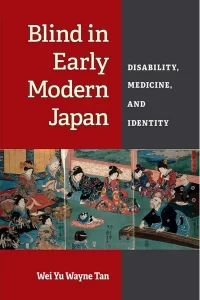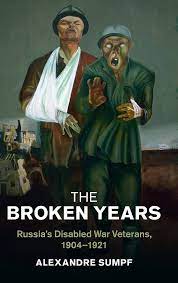The Disability History Association (DHA) promotes the relevance of disability history and facilitates research, publication, conference travel, and public history initiatives related to disability history.
The Disability History Association annually confers two publication awards: the Outstanding Book Award and the Outstanding Article/Book Chapter Award. Information about how to apply for each award, as well as past winners, can be found below.
Outstanding Book Award
As part of the Association’s 2024 Award Series, the DHA Award Committee invites entries for its thirteenth annual Outstanding Book Award. The amount of the award is $300. The winning book, as well as the book receiving the honorable mention, will be announced in September 2024.
Eligibility: Committee members welcome monographs and edited collections, provided the book is new, original scholarship and published in English. The award is open to authors writing across all geographic areas and time periods whose book was first published between January 1 and December 31, 2023. Members of the DHA Board of Directors are not eligible to apply.
Submission Procedure: In order to be considered, please send the following to the DHA Director of Awards, Dr. Jenifer Barclay (barclay7@buffalo.edu) and Book Award Chair Dr. Wayne Tan (tan@hope.edu) by May 1, 2024:
1. a brief cover letter that includes a full bibliographic citation for the book; and
2. an electronic copy of the book in text-based .pdf or .doc file format compatible with screen reading software for the review committee.
The members of the Award Committee understand that copyright rules apply and will use the electronic copy for the sole purpose of selecting a winner. Books that are not provided in accessible electronic formats for screen reading software in a timely manner will not be considered for the prize.
Applicants will also be required to send six print copies of the book to the members of the Book Award Committee. After you submit your cover letter and electronic copy of the book, the Book Award Co-Chairs will be in contact with you to arrange for the distribution of the hard copies. If you are concerned that you will not be able to provide hard copies of the book, please let the Book Award Co-Chairs know. Please direct any questions to the DHA Director of Awards (Jenifer Barclay, barclay7@buffalo.edu) or Book Award Chair (Wayne Tan, tan@hope.edu ).
Outstanding Article or Book Chapter Award
As part of the Association’s 2024 Award Series, the DHA is pleased to invite entries for its thirteenth annual Outstanding Article or Book Chapter Award competition. The winning article or book chapter, as well the article or book chapter receiving honorable mention, will be announced in September 2024.
Eligibility: The award committee welcomes entries that feature new and original history of disability scholarship. To be considered, submissions must have significant historical content.
This $200 award is open to authors writing across all geographic areas and time periods. The publication must be in English, with first publication taking place between January 1 and December 31, 2023. We are conscious that some journals publish an electronic advance copy of articles that can appear a considerable time before the print copy is published; we also recognize that some journals are running behind schedule so that, for example, an article published in October 2023 might actually appear in a 2022 edition. We will endeavor to be sympathetic in cases of “behind schedule” publication. If you feel that your proposed submission should be considered but might be at risk of disqualification, please email Jenifer Barclay (barclay7@buffalo.edu) for further information.
Submission Procedure: Please send one electronic (.pdf or .doc) copy of the article or book chapter to Dr. Jenifer Barclay (barclay7@buffalo.edu) no later than May 15, 2024. In your email, please include the full bibliographic citation of your submission in the Chicago Manual of Style format.
In the interest of modeling best practice in the field of disability history, we require that the electronic file be compatible with screen reading software (see this site, for example, for a guide). We understand that copyright rules apply, and we will only use the electronic copy for the purposes of the DHA Outstanding Publication Award. Manuscripts not provided in accessible electronic formats for screen reading software in a timely manner cannot be considered for the prize.
Members of the DHA Board are not eligible for either of these awards.
Recent Award Winners
2023 Outstanding Book Award
Winner
Wei Yu Wayne Tan, Blind in Early Modern Japan: Disability, Medicine, and Identity (University of Michigan Press, 2022).

The award committee described Blind in Early Modern Japan as a “carefully constructed work [that] fills in vital historical gaps: early modern era, Japan, and blind history.” It is “an impressive piece of scholarship” that “reveals new understandings of the relationships between medicine/systems of medicine and being blind, as well as how (a non-Western) religion contributed to the meaning and experience of being blind.” Tan “has done a superb job of locating and interpreting from a disability history perspective the experiences of blind people,” showing “how blind people formed an identifiable group of professionals from musicians, acupuncturists, and scholars, among other occupations, with elite males forming their own guild.” The author “paid thoughtful attention to gender and gender hierarchies, demonstrated significant research skills (including multilingual translation and interpretation), and worked diligently to center disabled people as active agents in this account. Through innovative approaches to historical sources and interpretations, Tan traces a different medical system—Sino-Japanese—than the Western biomedical model that dominates most disability history works. In so doing, he reveals new understandings of the relationships between medicine/systems of medicine and being blind, as well as how (a non-Western) religion contributed to the meaning and experience of being blind.”
Honorable Mention
Alexandre Sumpf, The Broken Years: Russia’s Disabled War Veterans, 1904-1921 (Cambridge University Press, 2022)

According to the selection committee’s comments, The Broken Years is “a superbly researched study of disabled veterans in Russia that addresses a significant omission in the historical record and insists on the important role disabled veterans have played in Russia’s past.” Characterized by “extensive, wide-ranging, and multilingual archival work,” the book importantly draws upon “first-person accounts from disabled soldiers’ points of view.” Sumpf is “expansive yet meticulous in his argument,” challenging readers “to consider wars as interlocking rather than discrete and individual: this is particularly useful for disability historians across many regions and eras.”
2023 Outstanding Article/Book Chapter Award
Winner
Jonathyne Briggs, “From Collaboration to Resistance: The Family Dynamic in Autism Literature in Contemporary France,” Contemporary European History 32, no. 2 (2023): 254-69.
From the Committee:
Briggs’ compelling work explores the transitory nature of autism literature in France during the second half of the twentieth century, shifting from primarily medical narratives to stories written by parents and then autistic people themselves. Challeng[ing] predominantly medical narratives and [chart[ing] disability rights discourse, Briggs successfully plac[es] the story of autism literature within the longer history of 20th-century psychiatry.
Honorable Mention:
Michael Rembis, “‘We Had Very Good Times Together’: A Mad People’s History of Life on Asylum Wards in the Early-Twentieth Century United States”
From the Committee:
Rembis uses writing from former asylum inmates – “mad writers” – to investigate the conditions in wards between 1890 and 1950 and explore “inmate” culture that helped many survive institutional confinement and foster connections for 20th-century civil rights movements. He deftly explores the communities forged within wards among inmates – including support groups such as the Suicide Club – using serious and cogent analysis to chart the difficult circumstances of confinement in such wards that prefaced efforts at solidarity. Rembis does “a deeply rigorous and moving job working with patient testimony.”
 The committee’s comments included:
The committee’s comments included: The committee’s comments included:
The committee’s comments included: